Global Foresight Leaders Gather in Bangladesh for the 4th Foresight4Food Workshop
Savar, Dhaka, June 2024 – The Foresight4Food initiative in partnership with the Global Alliance for Improved Nutrition (GAIN) and the Government of Bangladesh hosted the fourth Global Foresight4Food Workshop in Dhaka, Bangladesh.
The week-long workshop brought together foresight practitioners, users, researchers, and food systems experts from across the globe for stronger collaboration and to identify opportunities for enhancing the use of foresight in food systems transformation initiatives, deepen the understanding of effective foresight approaches, methods, and tools, and understand how these approaches and methods can be applied to food systems transformation. Additionally, the workshop aimed to explore how foresight and scenario analysis can be most effective in contributing to societal understanding, policy development, innovation, and systemic change.

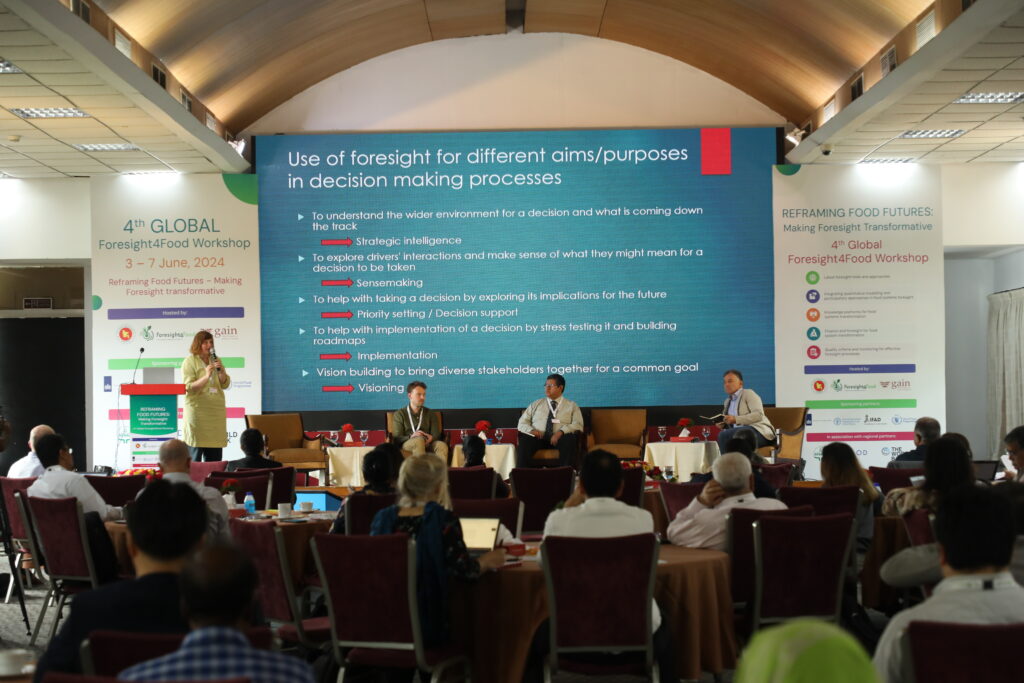
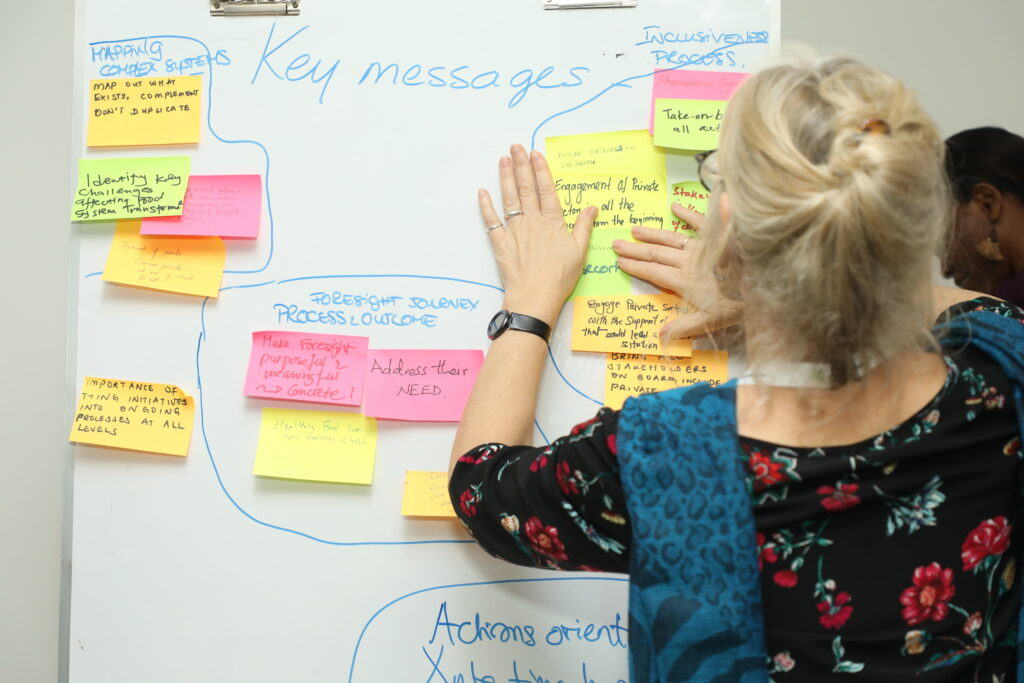
“As conveners of this workshop, we are excited to bring together leading organizations and institutions to address the critical challenges facing global food systems and its future,” said Jim Woodhill, Lead Foresight4Food Initiative “Our aim is to strengthen linkages across science, policy, and practice and drive transformative change in food systems worldwide.”
“As part of our ongoing commitment towards achieving nutritional outcomes through resilient food systems transformation, GAIN expresses its gratitude to the Government of Bangladesh, Government of the Netherlands, IFAD, FAO, WFP, Oxford and Wageningen Universities, the World Bank and partners for giving us the privilege to co-host this workshop. This year’s Global Foresight4Food workshop is a pivotal moment for all of us. We are collectively committed to harness foresight methodologies and drive systemic changes by aligning with country and global priorities, to foster nutrition-resilient communities.” said Dr Rudaba Khondker, Country Director, Global Alliance for Improved Nutrition in Bangladesh.
The inaugural session featured several distinguished speakers. Dr Jim Woodhill from the University of Oxford delivered the welcome address. Keynote speakers included Dr. Amina Maharjan from ICIMOD and Dr. Ravi Khetarpal from APAARI, discussing food systems transformation in Asia. Dr. Ruhul Amin Talukder, Senior Advisor of GAIN Bangladesh, presented on shaping policies in Bangladesh, and Dr. Mohammad Monirul Hasan, Country Advisor from GAIN Bangladesh, also delivered a keynote.
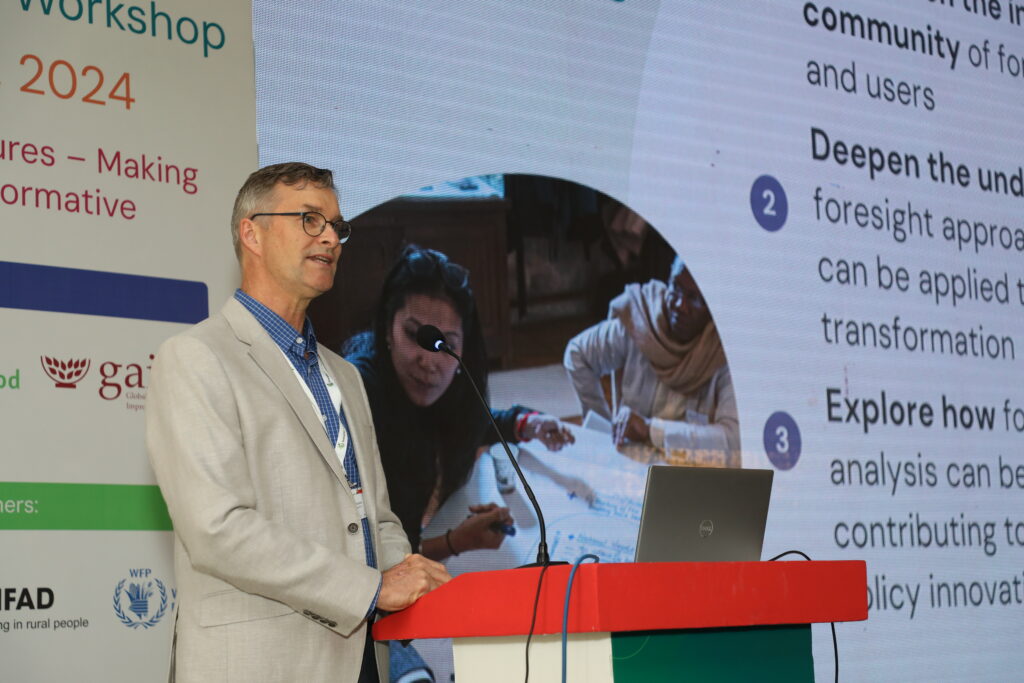
Special remarks were given by Dr. Nurun Nahar Chowdhury, ndc, Additional Secretary of the Ministry of Agriculture, and Md. Mahmudul Hossain Khan, Secretary, Coordination and Reforms, Cabinet Division. Md. Shahidul Alam ndc, Director General of FPMU, Ministry of Food, also spoke on the occasion. Additional remarks came from the IFAD Country Director, the WFP Representative, and the FAO Representative in Bangladesh.
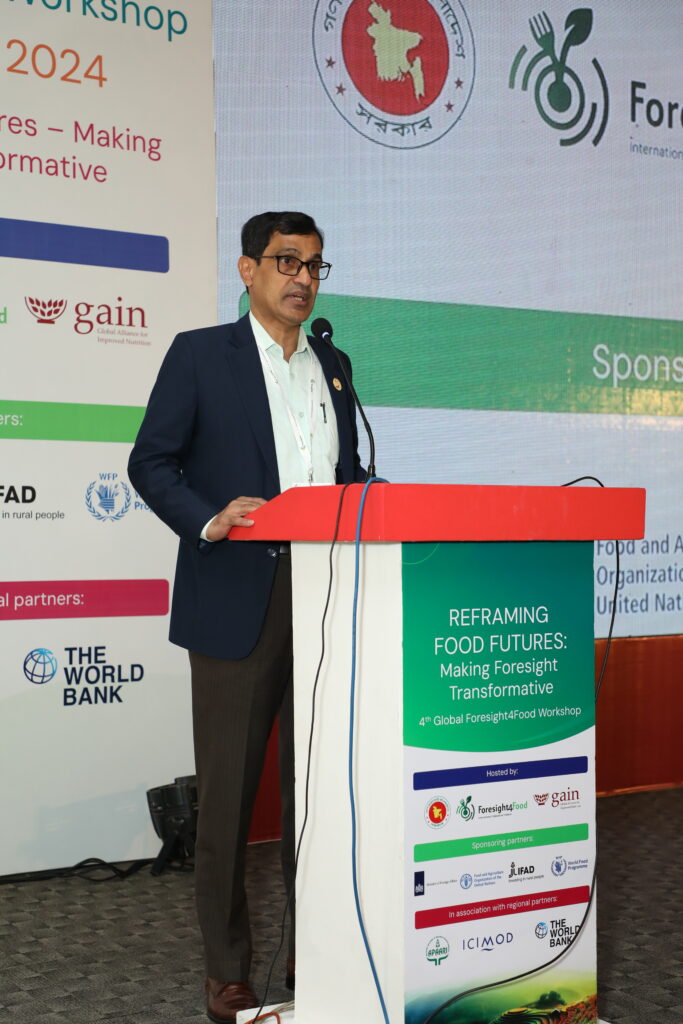
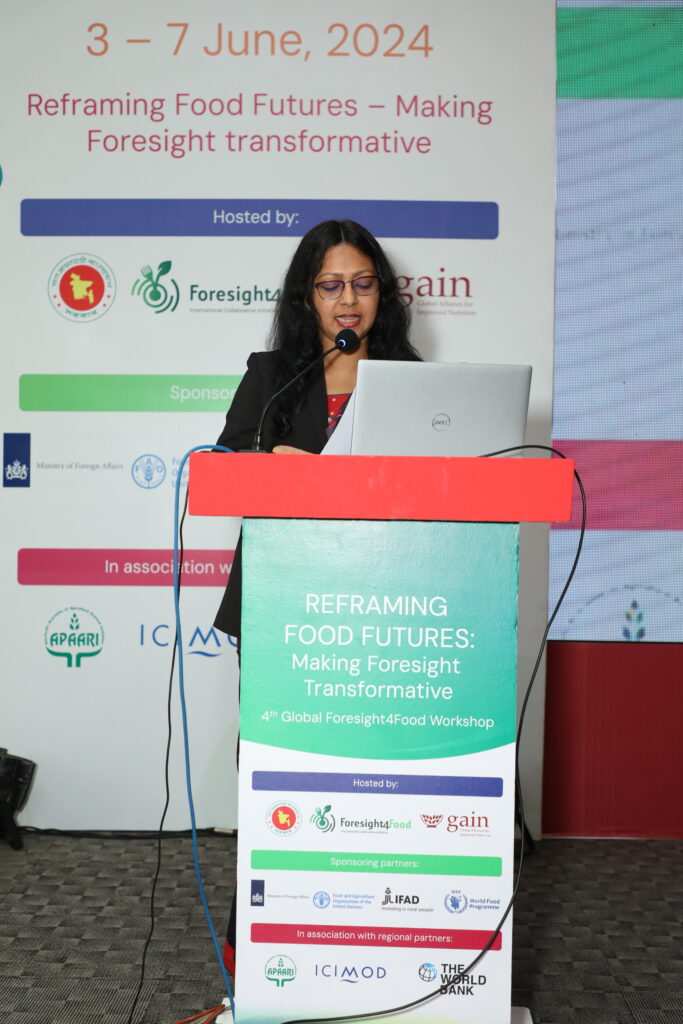
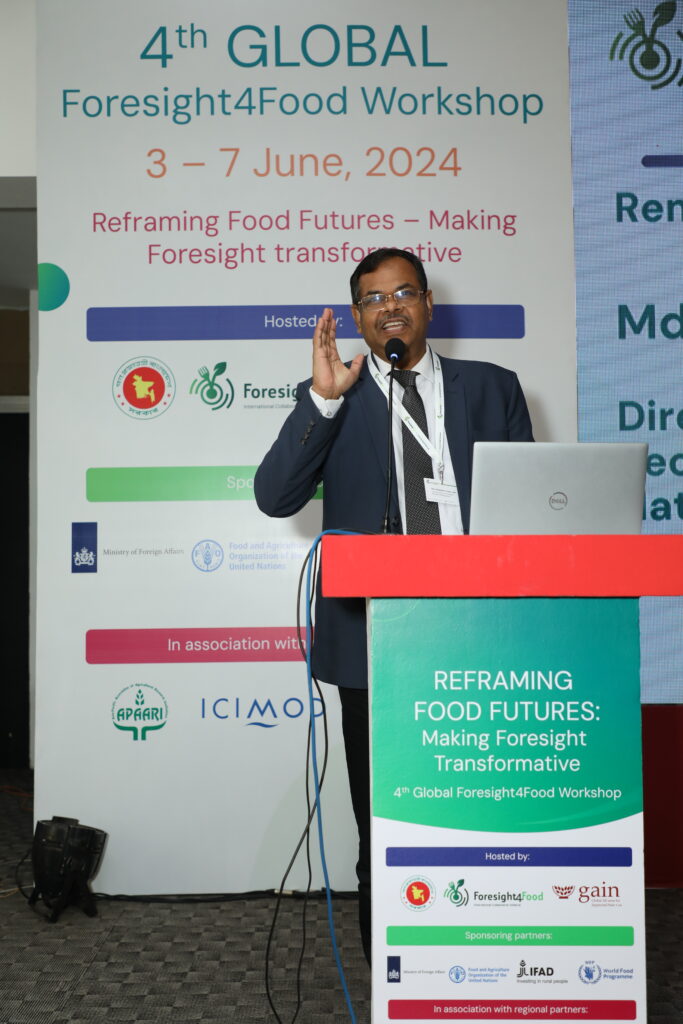
The session concluded with a note of thanks from Dr. Rudaba Khondker, Country Director of GAIN Bangladesh.
The host country of this year’s workshop, Bangladesh, has made tremendous progress in improving its food security and nutritional status over the last decade through integrated policies, smart investments, and agricultural incentives. “By hosting this workshop in Bangladesh, we are taking a big step forward in our mission for forward-thinking agriculture and food security strategies, setting the stage for a sustainable future. We can tackle the critical challenges in today’s food systems by uniting government officials, technical experts, and global foresight leaders. This collaboration allows us to harness top knowledge and expertise, creating resilient and adaptable food systems ready for future demands,” said Dr. Arnoud Hameleers, IFAD Country Director for Bangladesh.
The Foresight4Food workshop commenced with a food systems foresight orientation Masterclass and included field trips designed to spark learning through discussion, inspirational keynotes, interactive sharing sessions, thematic sessions, strategic case study presentations, and networking opportunities. Its goal is to illustrate the transformative power of investing in foresight for food systems.
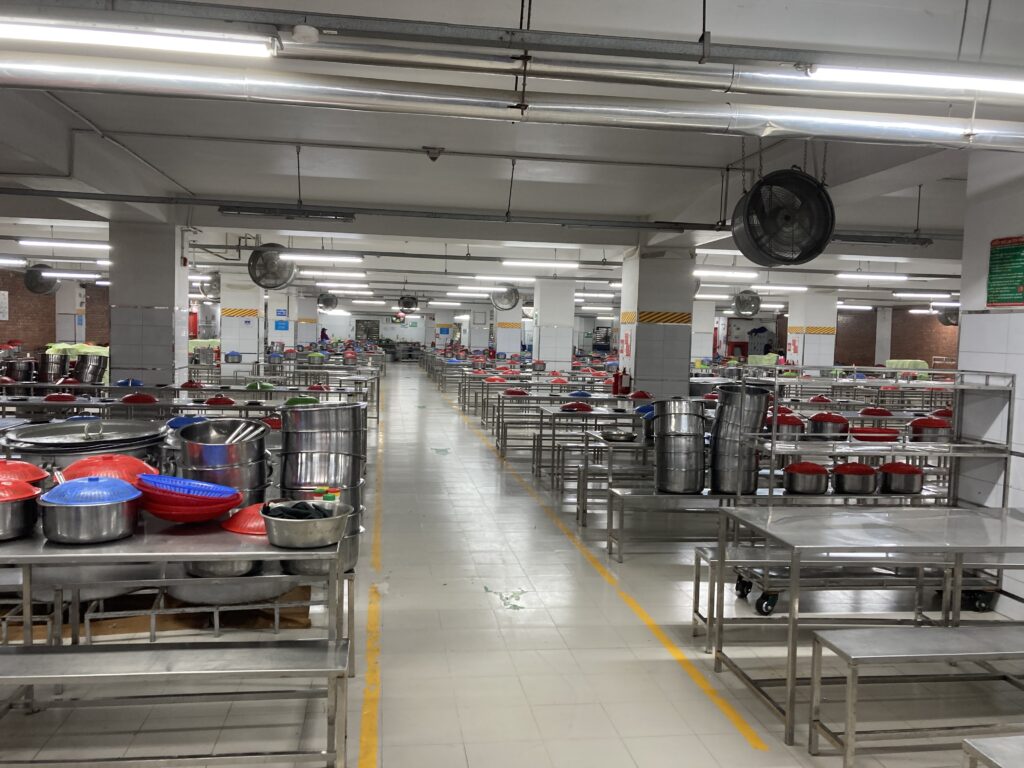
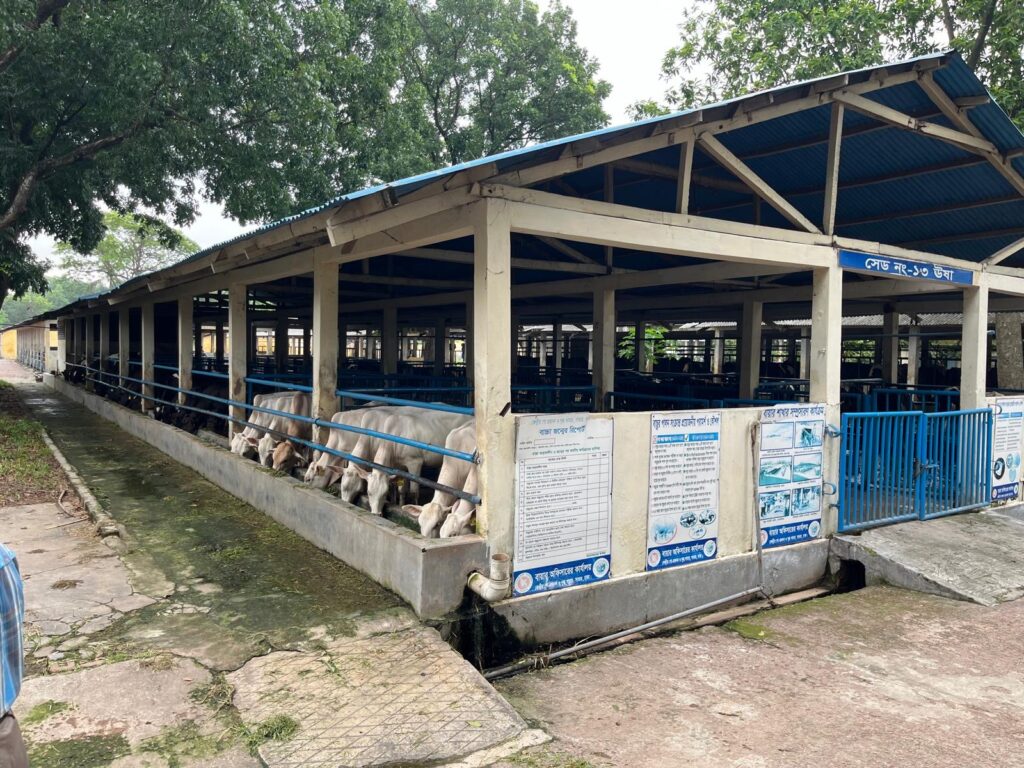
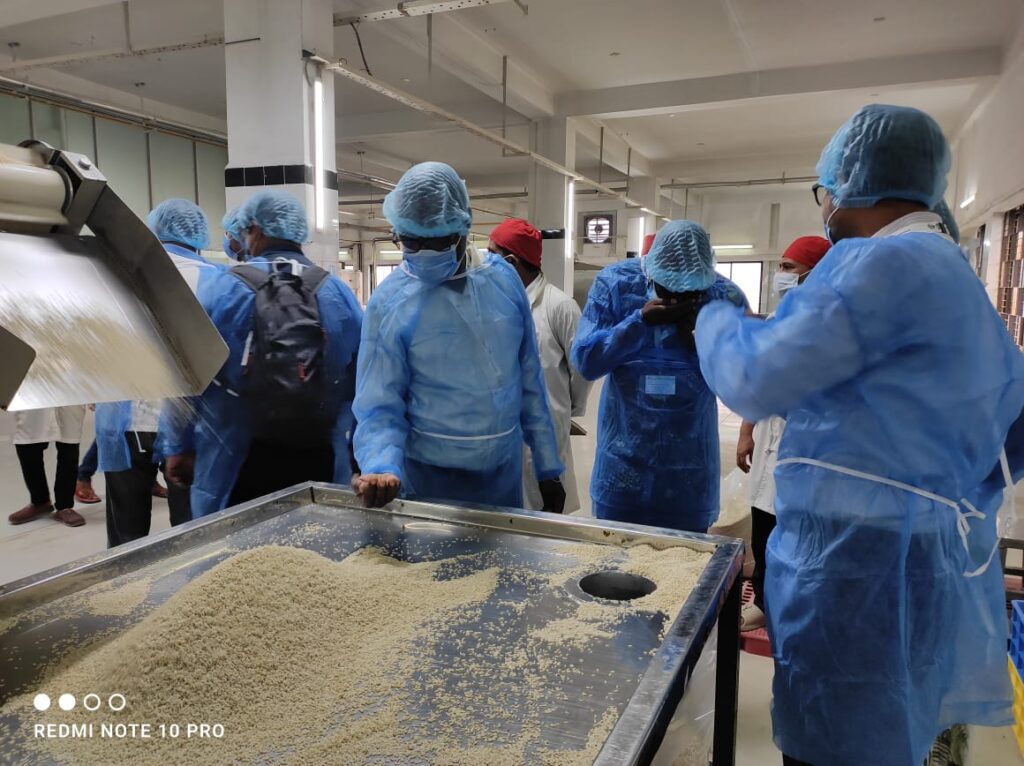
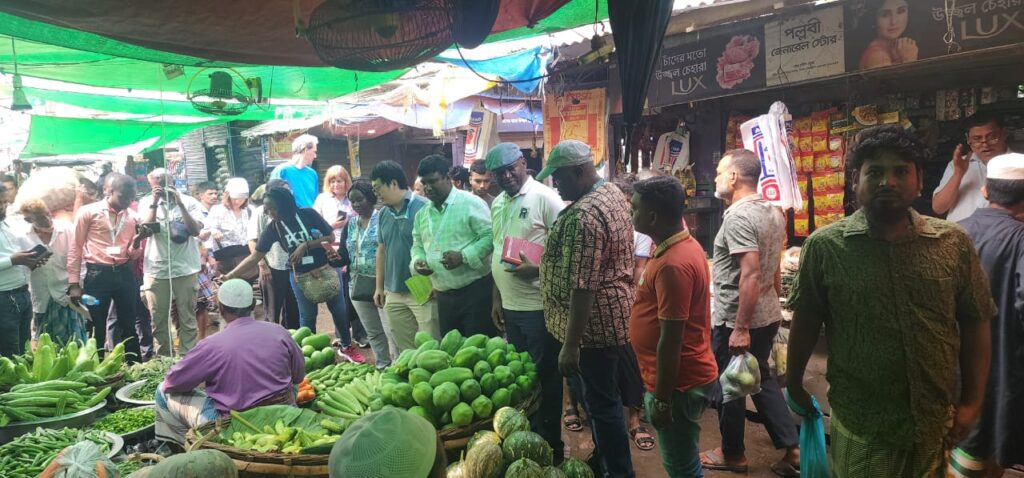
Dia Sanou, Deputy FAO Representative in Bangladesh said, “FAO’s holistic approach targets better production, better nutrition, a better environment, and a better life, leaving no one behind. Integrating foresight is crucial to anticipate and navigate future challenges, to move future agrifood systems towards a scenario of more efficiency, inclusivity, resilience, and sustainability.”
Domenico Scalpelli, Country Director of the World Food Programme, congratulated the government of Bangladesh for its achievement in launching the Bangladesh Food System Dashboard for food system transformation. “As a longstanding partner, WFP has been working hand in hand with the Government of Bangladesh across various sectors, including food security, nutrition, school feeding, and resilience-building for communities against climate change. As part of the food systems approach, WFP has also engaged with other actors, including Rome-based agencies FAO and IFAD, as well as private businesses in areas such as rice fortification. Through shared responsibilities and collaborative efforts, we can further strengthen our foresight potential as an international community, ensuring sustainable food system transformation in Bangladesh and beyond.”
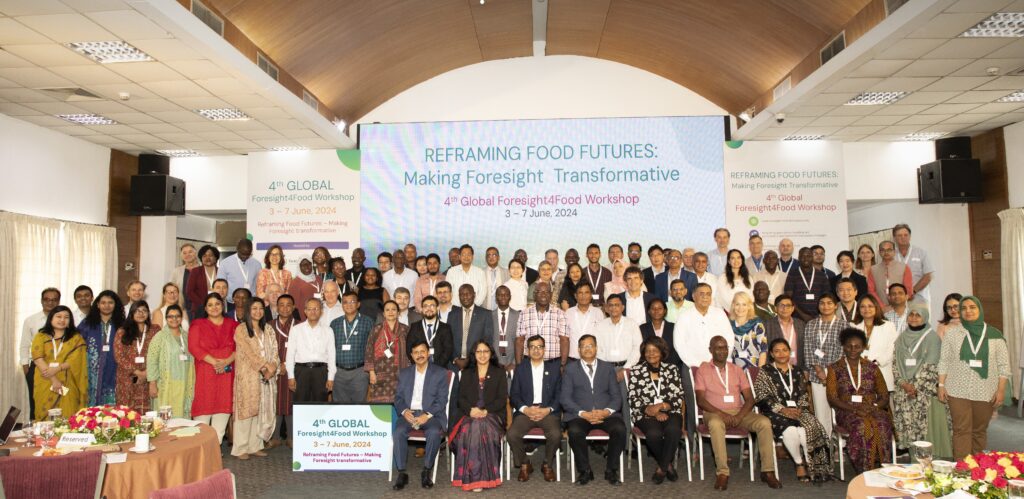
The workshop brings together senior government officials, the private sector, senior technical experts, global foresight leaders, and food system changemakers worldwide. This workshop, to be held in collaboration with regional development partners such as UN agencies, regional foresight networks, global research platforms, and international development agencies, will align with the Bangladesh government’s commitment towards Perspective Plan of Bangladesh 2021-2041, Mujib Climate Prosperity plan 2022-2041, Bangladesh Delta Plan 2100, and National Adaptation Plan 2023-2050.